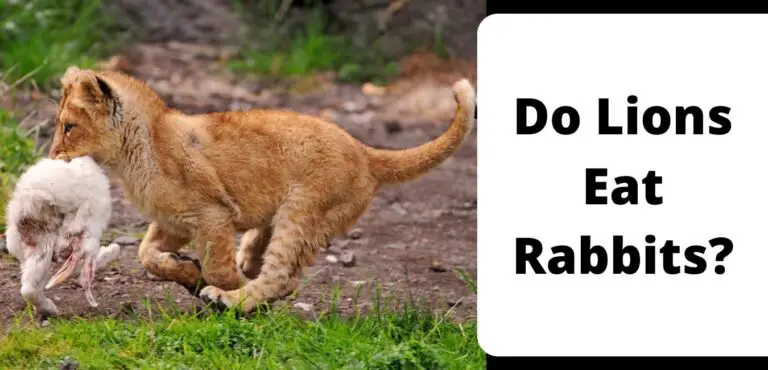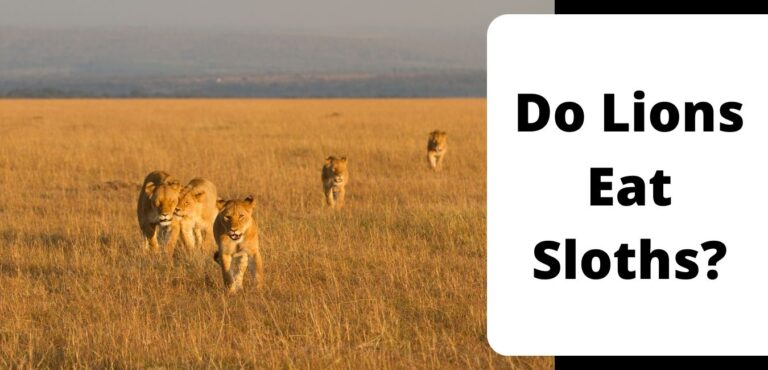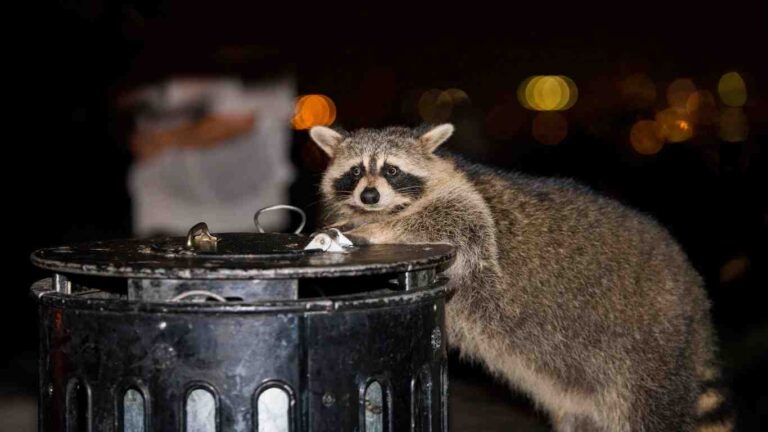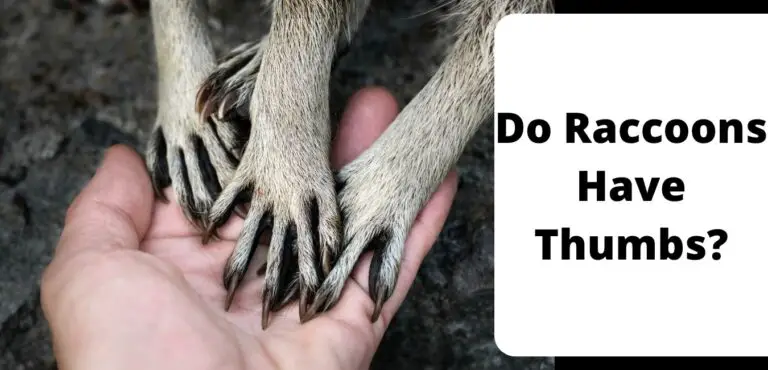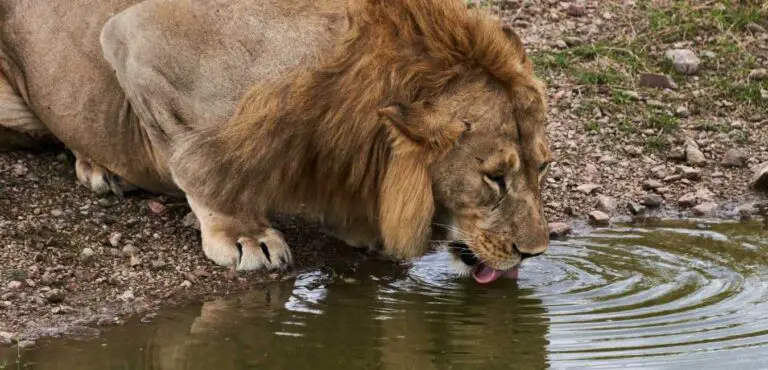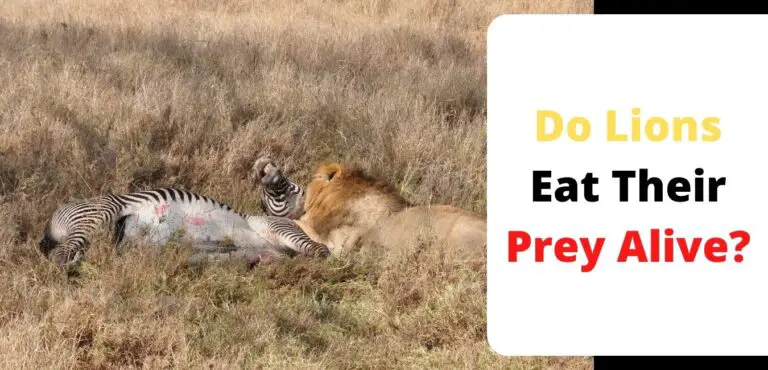Do Raccoons Eat Rabbits

Whether we like it or not, raccoons are a part of our life. Raccoons may cause difficulties in our garbage, gardens, and the habitats of our animals. If you own a rabbit, you may be concerned about raccoons attacking and eating your pet.
The unfortunate reality is that raccoons would assault and devour rabbits if given the opportunity. These creatures, however, may not be as dangerous to rabbits as you would think. This post is for you if you have a rabbit and are worried that a raccoon may eat it. We’ll show you how and why raccoons are harmful to rabbits, why rabbits aren’t raccoons’ first choice of prey, and what you can do to safeguard your rabbits.
Raccoons and Rabbits: What Makes raccoons dangerous for a Rabbit?
Raccoons are opportunistic omnivores who consume everything they can get their hands on, including rabbits. They’ll eat it if they can get it out of the ground or kill it. Raccoons have razor-sharp claws and fangs that may seriously injure a rabbit in a battle. A raccoon attacking a rabbit has a high chance of winning, especially if the rabbit is caught off guard, which is usually always the case.
Rabbits aren’t hunted by raccoons for pleasure. If they have just eaten and are not on the quest for food, they will typically avoid a rabbit encounter. If a raccoon is hungry, though, they will spend a lot of time attempting to figure out how to take down a rabbit and turn it into a meal.
Should you be concerned about raccoons eating your rabbits?
If you have rabbits, you are well aware that they are prey to a variety of predators. Raccoons eat rabbits, right?
Raccoons eat rabbits and will do so if required. Raccoons eat both animals and plants, making them omnivores. Because raccoons are far slower than rabbits, the chances of a raccoon capturing, killing, and devouring one are slim. Raccoons are foragers who prefer to scrounge for food rather than hunt.
Raccoons in the neighborhood are not only hazardous because they may infect you with rabies and scratch you, but they can also hurt your pets. They can not only injure your pets, but they can even devour them. Raccoons will consume nearly anything if they believe it is a good source of food.
We already know that raccoons will devour just about everything. An animal that feeds on garbage has nothing to lose. Raccoons can eat anything if they can consume garbage.
Why Rabbits Aren’t Raccoons’ Favorite Food?
Raccoons will attack and eat rabbits, although it is not their favorite option for a variety of reasons. To begin with, rabbits are far quicker than raccoons and will almost always outrun them if they become aware that they are being pursued. Rabbits are also capable of putting up a strong fight. Even if a raccoon wins the battle, it will almost certainly suffer injuries.
A raccoon will have a difficult time catching a rabbit. In comparison to rabbits, raccoons are relatively sluggish. A raccoon’s top speed is around 15 miles per hour. A sluggish rabbit, on the other hand, will be able to achieve speeds of 27 mph.
Raccoons will be easily outpaced by rabbits. If the rabbit isn’t paying attention, is asleep, or the raccoon invades the rabbit’s hiding spot, the raccoon may be able to ambush it.
Because raccoons realize they have a slim chance of capturing a rabbit and are likely to get injured in the process of pursuing one, they prefer to spend their time rummaging in garbage cans until they can discover a rabbit that is off guard.
Raccoons kill rabbits in a variety of ways!!!
Raccoons have a reputation for being violent. They’ll observe the rabbit for a while before attacking when the moment is appropriate. Because rabbits are smaller than raccoons, a raccoon is more likely to attack one than a dog or a larger animal. Raccoons may be extremely hazardous, even life-threatening in some cases.
If a raccoon attacks your rabbit, it will kill it with its fangs and claws. The fangs and claws are quite deadly, quickly tearing through the skin and flesh of your rabbit. Because a rabbit is considerably smaller than a raccoon, it will be at a disadvantage from the start.
The raccoon’s running pace may not be as fast as a rabbit’s, but in a battle, they move at a similar rate. In a battle, both of these animals move swiftly, and the raccoon can kill the rabbit.
Infant rabbits (kittens) are not easy food for raccoons:
A nest of baby rabbits may be attacked. If the mother is not there, the raccoon will have a fighting chance against the young. The mother and her children are rarely together throughout the day, but she will always be near them where she can see them. This guarantees that if a predator sets its sights on the young, she will be able to reach them.
If the raccoon gets too close to the mother’s young, she will fight back. If the mother rabbit and raccoon come to blows, the rabbit can kick the raccoon in the proper spot, distracting it long enough for the rabbit to kill it.
What You Can Do to Keep Raccoons Away From Your Rabbits
If the rabbit is unable to keep itself secure, you may need to guard it to prevent predators from catching it. Rabbits are attacked by a variety of species, not simply raccoons. Here’s how you can keep your bunnies safe:
1. Keep your rabbits in a cage: If you’re afraid of raccoons attacking and devouring your rabbits, you may keep them safe by keeping them in a cage. To give your rabbits the feeling of being outside, it should be made of metal fencing or wire.
To prevent a raccoon from breaking through and getting in, the habitat should be welded together where the wire or fence meets.
Raccoons won’t be able to dig below the fence or wire if it’s buried in the ground. Raccoons will be unable to hide near the habitat if dense shrubs and foliage are allowed to develop around it, catching your rabbits off guard.
You may also use motion sensor lights to keep night-stalking raccoons away from your rabbits while they sleep.
2. Keep your rabbits indoors: raccoons and other nocturnal creatures will come out at night seeking food. Keeping your rabbit indoors during these hunting hours is one method to keep them safe. Toys, food, water, and plenty of areas to play and have fun will keep the rabbit engaged.
3. Secure the hatch: If your rabbit lives outside, you can keep it secure by securing the hatch and ensuring that it is robust. Plywood or chicken wire are used to make generic hatches. If a determined predator attempts, they’ll have little trouble getting in. Raccoons can even unlock the rabbit’s hatch’s clasp. Make a predator-proof hatch to keep them safe.
4. Rabbits are extremely vulnerable animals: so keep them away from predators. If your rabbit is shocked or startled, it may die of cardiac arrest. Being approached by a raccoon, hearing loud noises, or anything else that shocks it are examples of this. To ensure that your rabbit has a long and healthy life, keep it stress-free and away from predators.
5. Add an electric fence: Raccoons are excellent climbers and will easily scale your normal fence. Install an electric fence or connect an electric fence charger to your metal fence to prevent them from scaling it; this method is effective.
6. Keep an eye on your rabbit: whether that means going outdoors with them or checking in on them every few hours. This reduces the odds of a predator attacking your animals.
7. Use the finest raccoon repellent:
a. Raccoons dislike the fragrance of spicy spices, whether it’s cayenne pepper or regular black pepper. You may build your DIY repellent by mixing cayenne pepper with water, pepper, and water, or using spicy sauce alone. To discourage, raccoons, apply the mixture to entrance sites they frequent.
b. Ammonia: Many undesirable pests, including raccoons, dislike the scent of ammonia. They associate ammonia with the odor of urine. Raccoons are typically clean creatures, and this odor repels them. To keep raccoons away from your home, put ammonia in and around it.
Conclusion
While raccoons can prey on rabbits, the hazards are less when compared to other predators like dogs and coyotes. Even yet, if you reside in a region with a large raccoon population, you are constantly at risk of a raccoon attack. Hopefully, you may rest easy knowing that you’ve learned about the dangers of raccoons eating rabbits and how to keep your pets safe outside.

